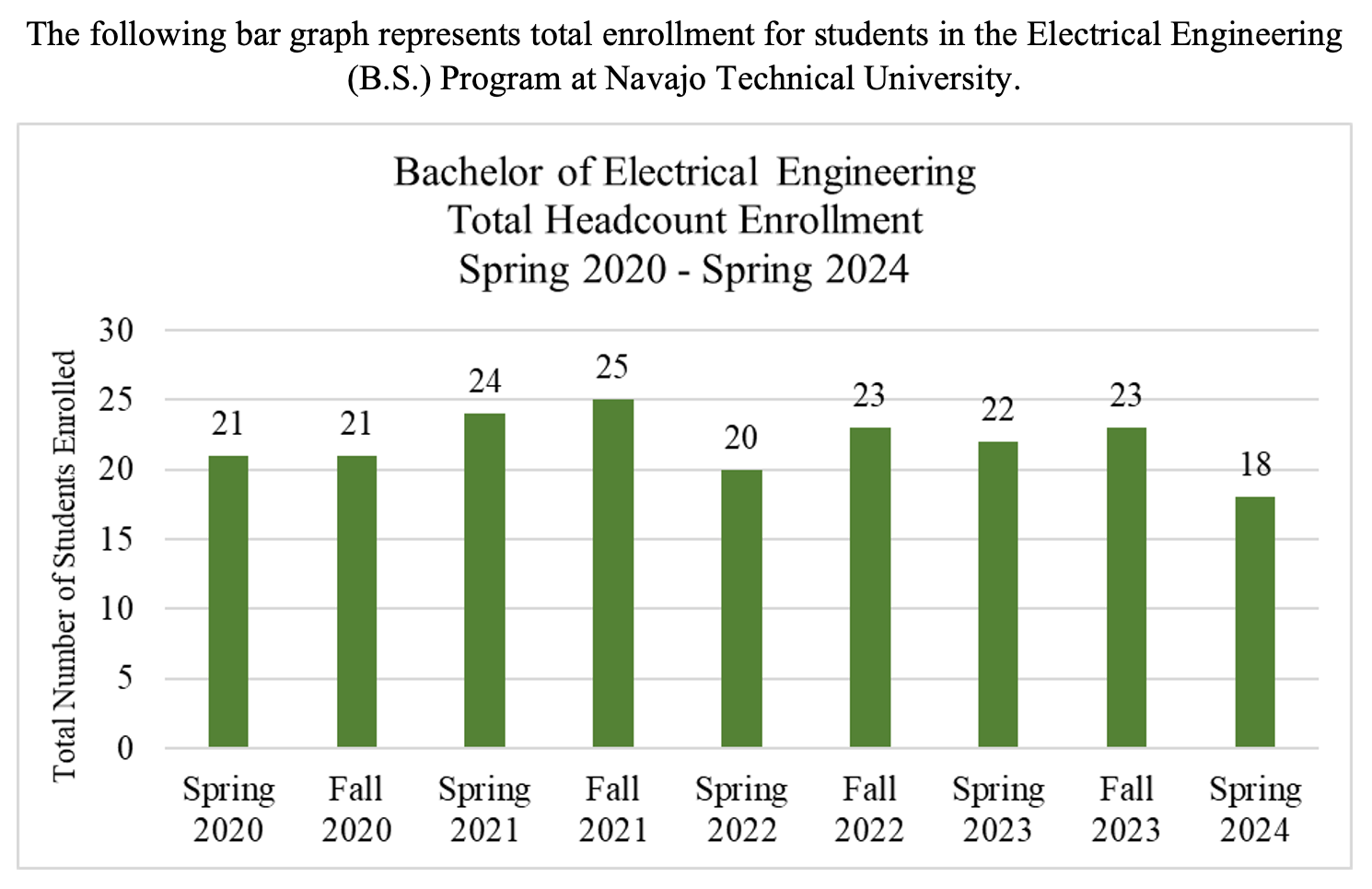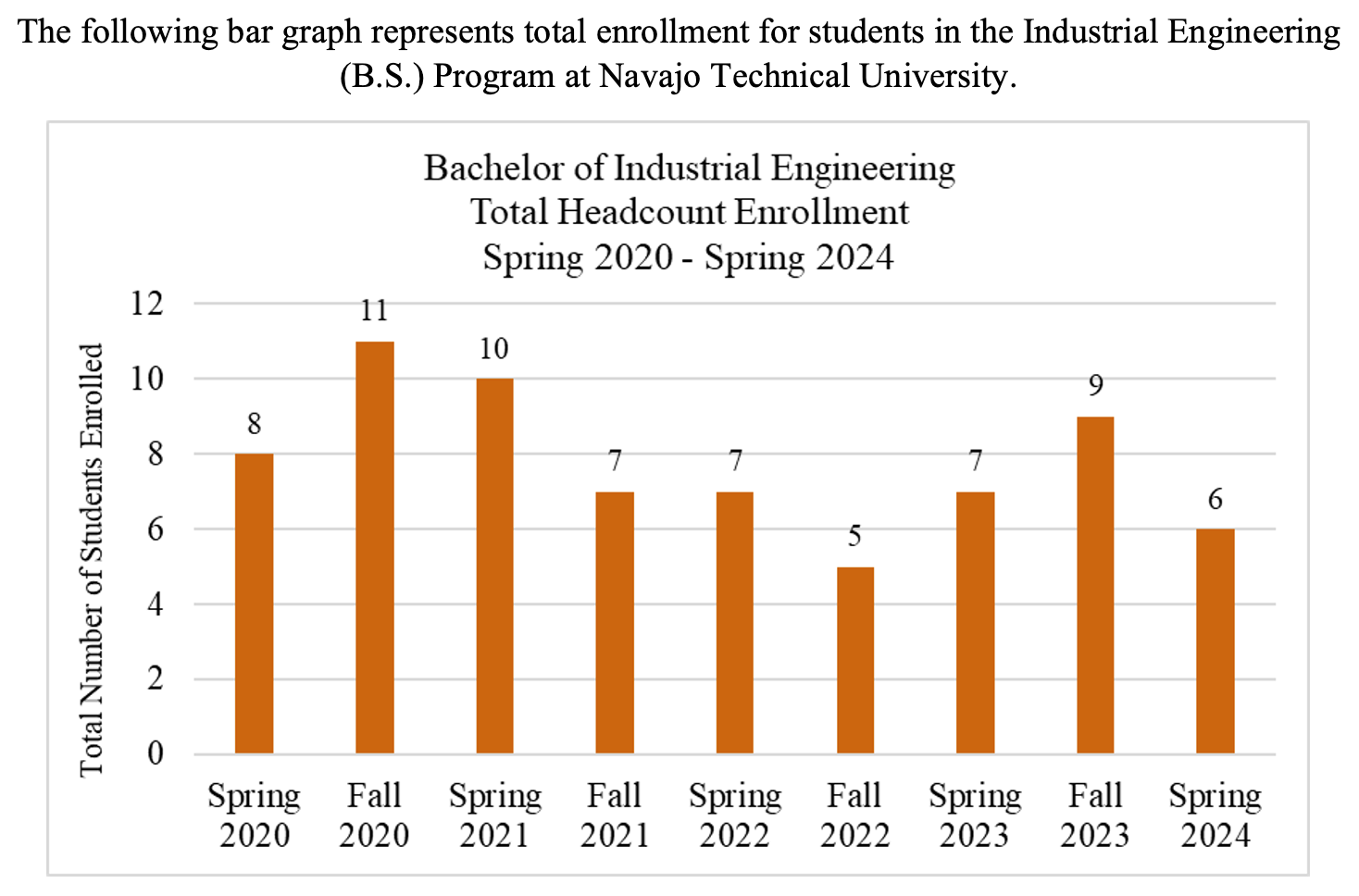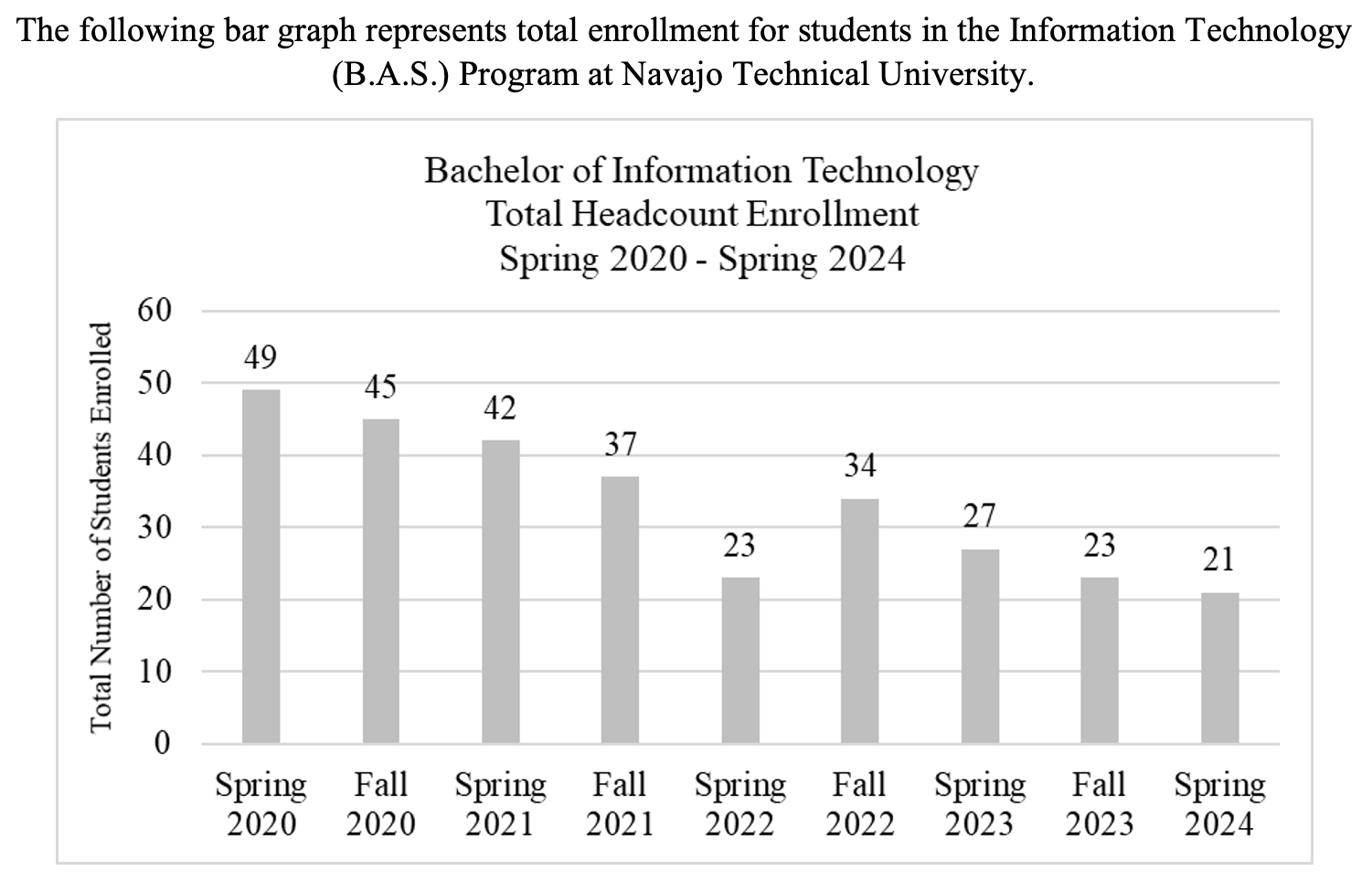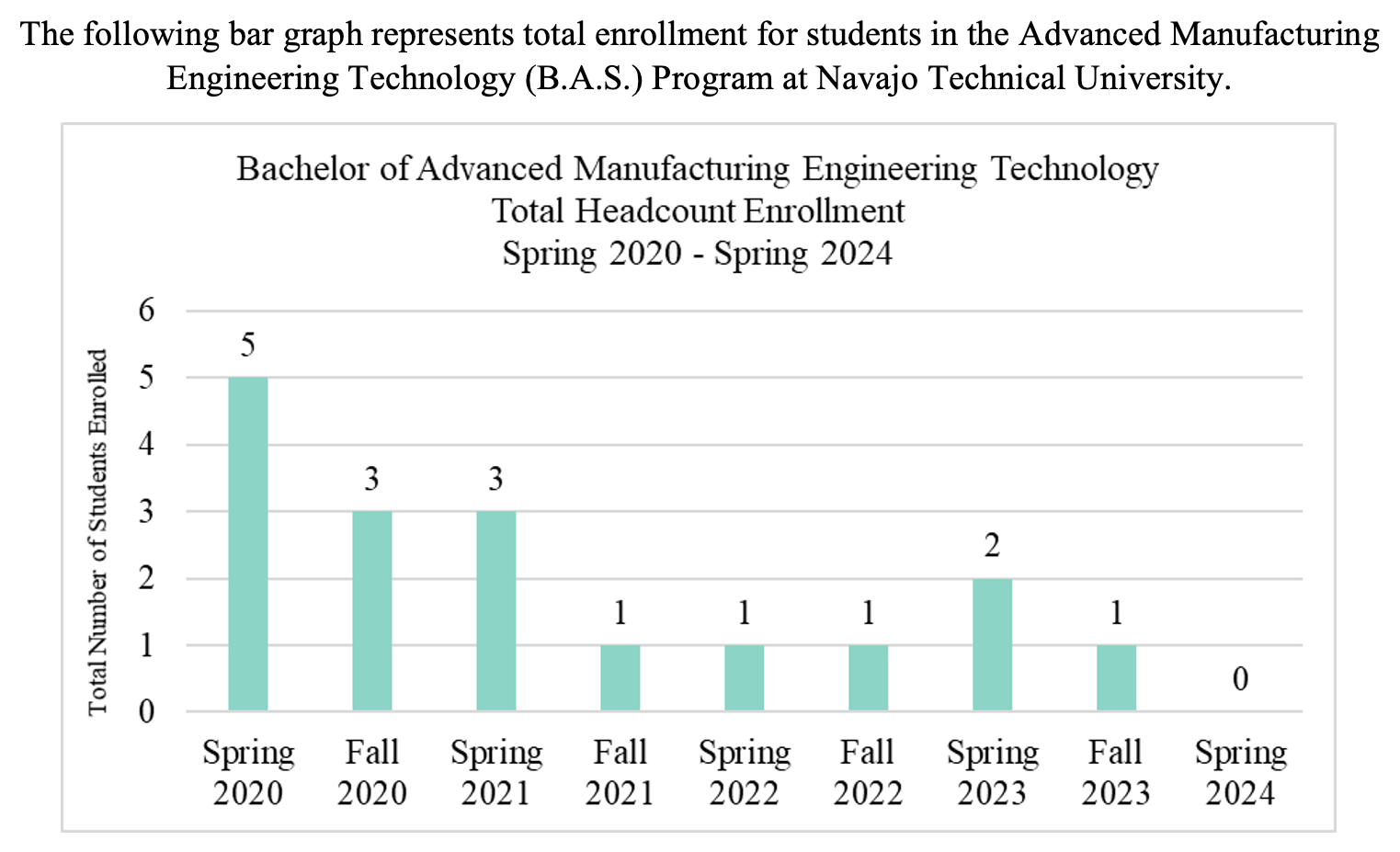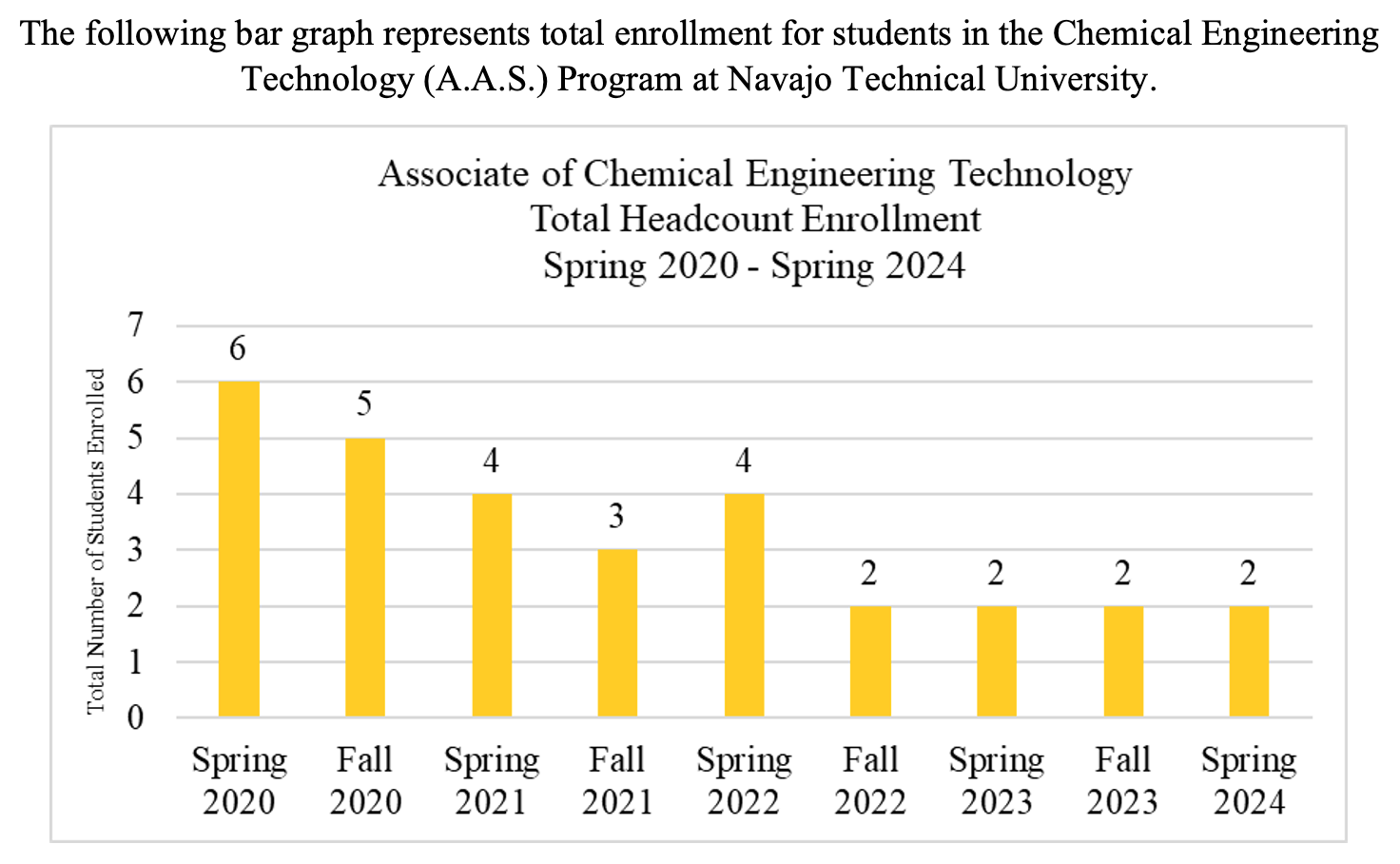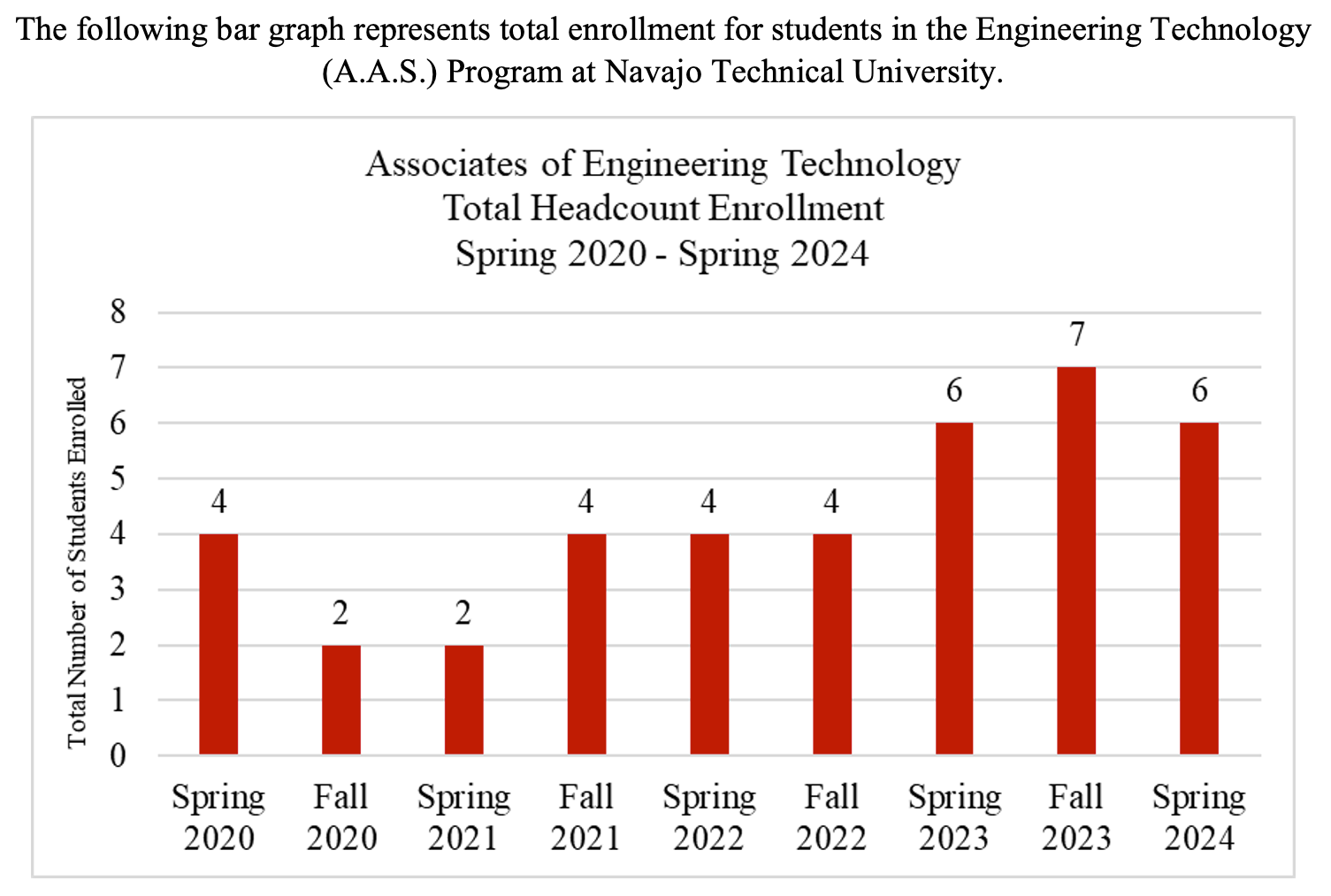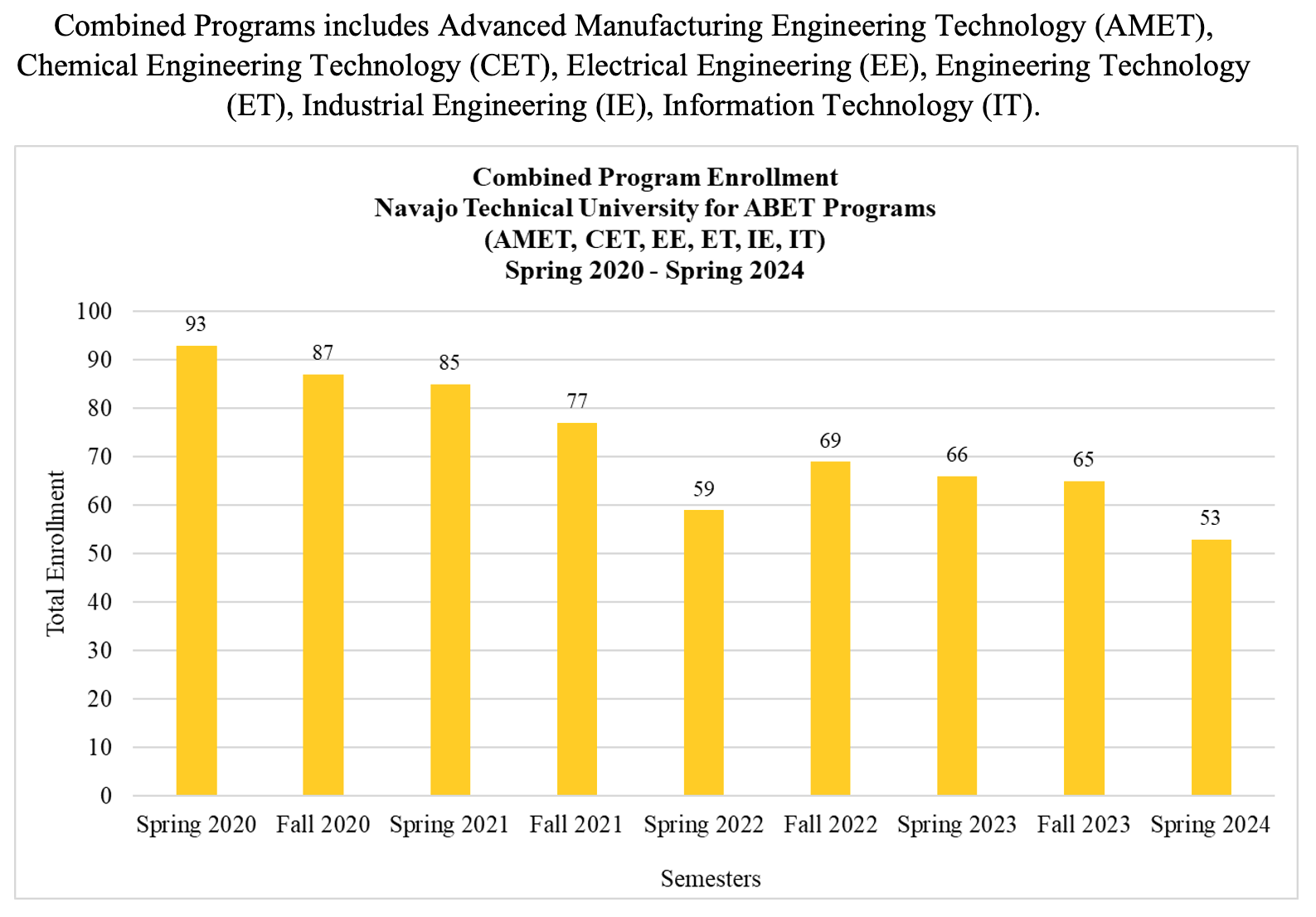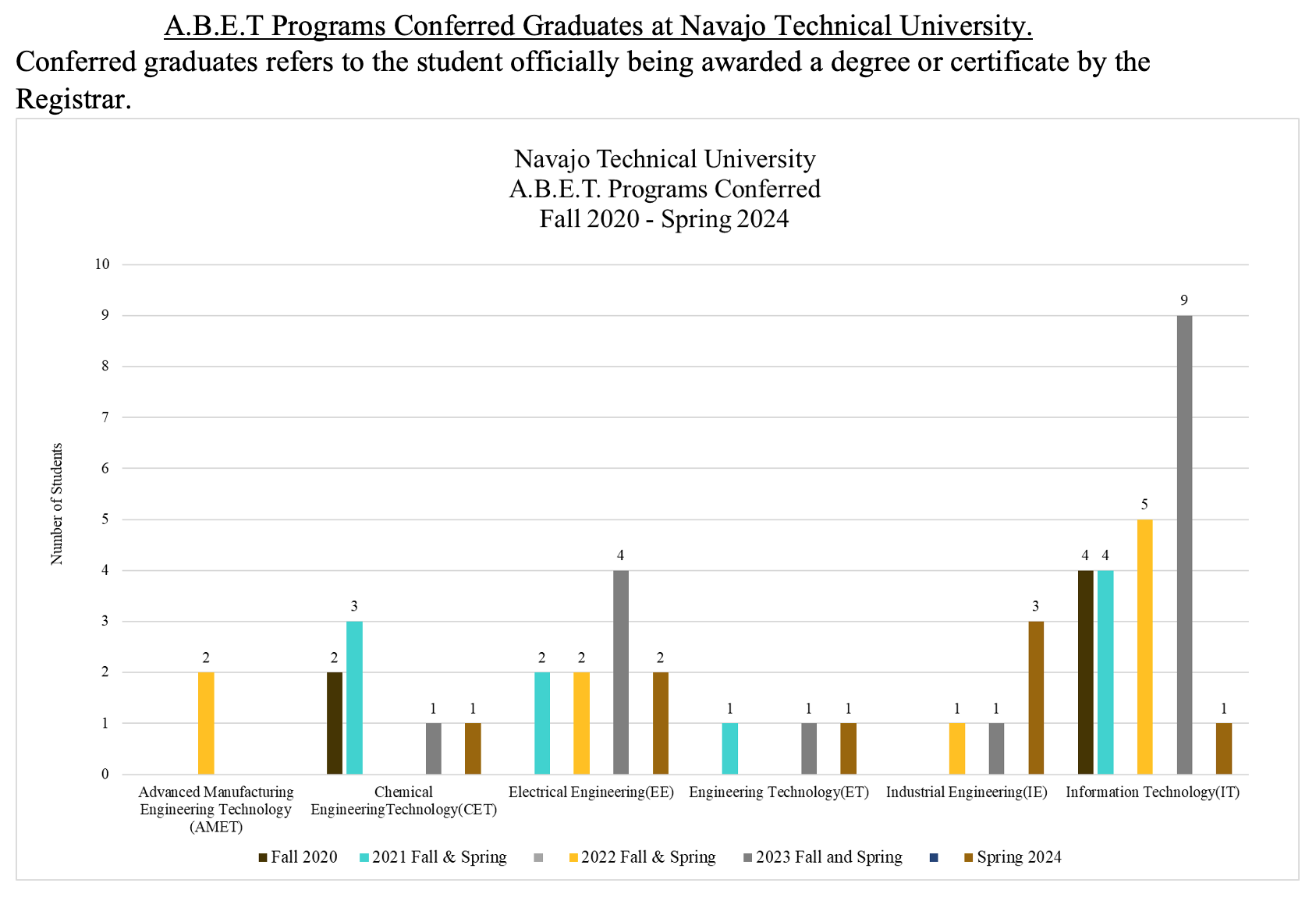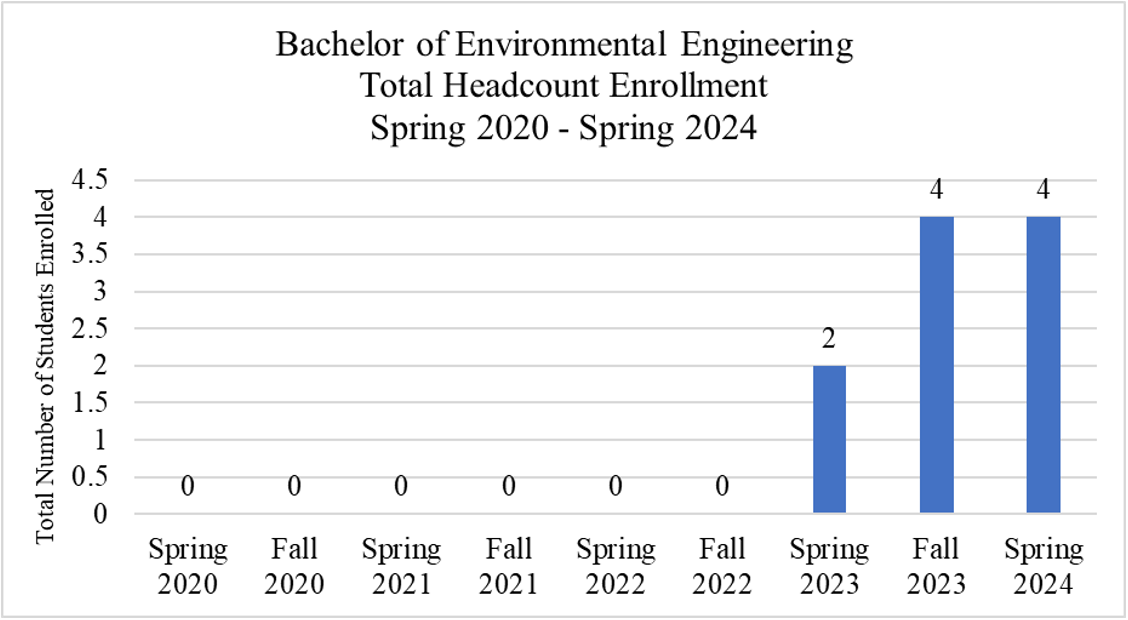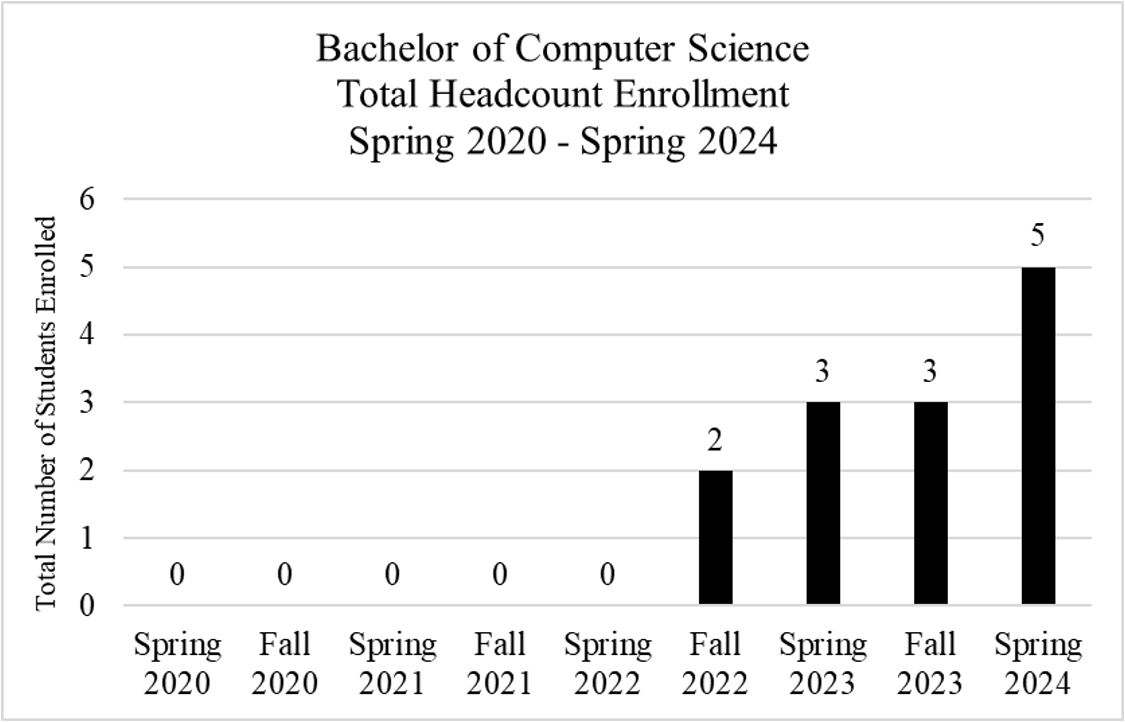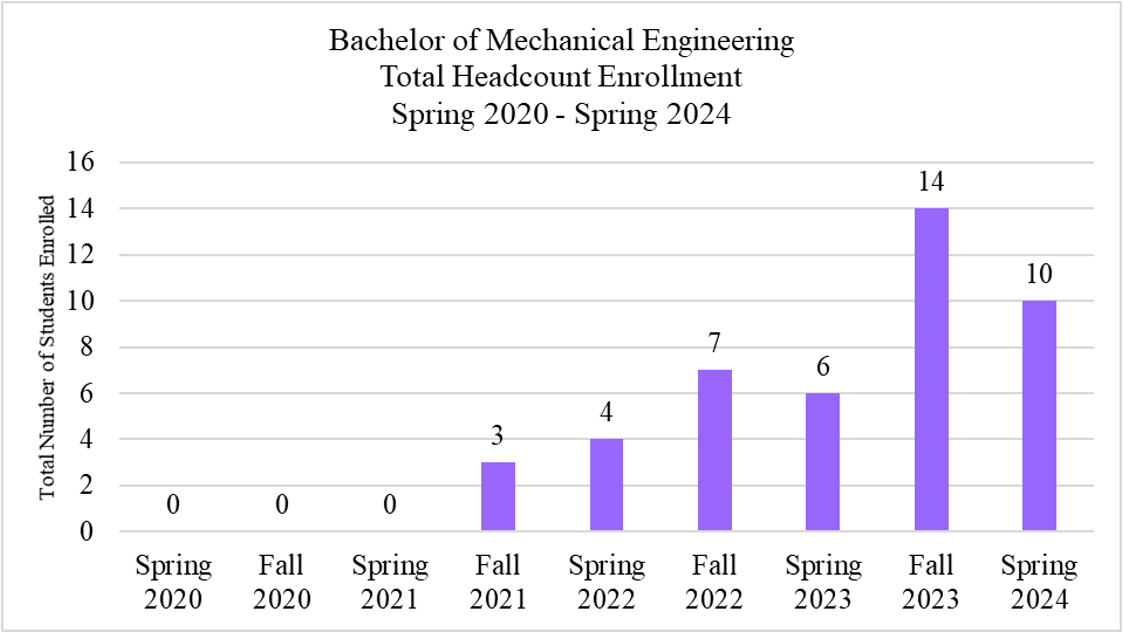ACADEMICS
Service. Support. Resources.
ABET Accreditation
Electrical Engineering (B.S.) Program
The Electrical Engineering (B.S.) Program is accredited by the Engineering Accreditation Commission of ABET, https://www.abet.org, under the General Criteria and the Electrical, Computer, Communications, Telecommunication(s) and Similarly Named Engineering Programs Program Criteria.
https://www.navajotech.edu/academics/bachelor-of-science/electrical-engineering/
Industrial Engineering (B.S.) Program
The Industrial Engineering (B.S.) Program is accredited by the Engineering Accreditation Commission of ABET, https://www.abet.org, under the General Criteria and the Industrial and Similarly Named Engineering Programs Program Criteria.
https://www.navajotech.edu/academics/bachelor-of-science/industrial-engineering/
Information Technology (B.A.S.) Program
The Information Technology (B.A.S.) Program is accredited by the Computing Accreditation Commission (CAC) of ABET, https://www.abet.org, under the General Criteria and the Information Technology and Similarly Named Computing Programs Program Criteria.
https://www.navajotech.edu/academics/bachelor-of-applied-science/information-technology/
Advanced Manufacturing Engineering Technology (B.A.S.) Program
The Advanced Manufacturing Engineering Technology (B.A.S.) Program is accredited by the Engineering Technology Accreditation Commission (ETAC) of ABET, https://www.abet.org, under the General Criteria and the Manufacturing Engineering Technology and Similarly Named Programs Program Criteria.
https://www.navajotech.edu/academics/bachelor-of-applied-science/advanced-manufacturing-engineering-technology/
Chemical Engineering Technology (A.A.S.) Program
The Chemical Engineering Technology (A.A.S.) Program is accredited by the Engineering Technology Accreditation Commission (ETAC) of ABET, https://www.abet.org, under the General Criteria and the Chemical/Refinery Process Engineering Technology and Similarly Named Programs Program Criteria.
https://www.navajotech.edu/academics/associate-of-applied-science/chemical-engineering-technology/
Engineering Technology (A.A.S.) Program
The Engineering Technology (A.A.S.) Program is accredited by the Engineering Technology Accreditation Commission (ETAC) of ABET, https://www.abet.org, under the General Criteria and the Engineering Technology and Similarly Named Programs Program Criteria.
https://www.navajotech.edu/academics/associate-of-applied-science/engineering-technology/
Combined Programs
Combined program enrollment for Advanced Manufacturing Engineering Technology (AMET), Chemical Engineering Technology (CET), Electrical Engineering (EE), Engineering Technology (ET), Industrial Engineering (IE), Information Technology (IT).
A.B.E.T Programs Conferred Graduates at Navajo Technical University.
Conferred graduates refers to the student officially being awarded a degree or certificate by the Registrar.
Enrollment numbers for the following programs: Environmental Engineering, Computer Science, and Mechanical Engineering.
Engineering Accreditation Commission (EAC)
Program Educational Objectives (PEOs) for a Bachelor of Science Degree in Electrical Engineering (EE), Environmental Engineering (ENVE), Industrial Engineering (IE), and Mechanical Engineering (ME)
The Navajo Technical University (NTU) engineering alumni will show that they meet expectations by performing within one or more of these parameters in five to seven years after graduation:
- Show progress in their career through greater supervisory tasks, advancing to larger managerial responsibility or increasing technical accountability.
- Acquire professional engineer’s license, other certifications of expertise in technical areas or attend graduate school in an appropriate technical discipline.
- Demonstrate success by continuing employment and/or technical accomplishments as entrepreneurs, civil servants or in commercial or industrial endeavors.
Student Learning Outcomes (SLOs) for a Bachelor of Science Degree in EE, ENVE, IE, and ME
Student Learning Outcomes (SLOs) demonstrate what students are expected to know at the time of graduation.
- an ability to identify, formulate, and solve complex engineering problems by applying principles of engineering, science, and mathematics
- an ability to apply engineering design to produce solutions that meet specified needs with consideration of public health, safety, and welfare, as well as global, cultural, social, environmental, and economic factors
- an ability to communicate effectively with a range of audiences
- an ability to recognize ethical and professional responsibilities in engineering situations and make informed judgments, which must consider the impact of engineering solutions in global, economic, environmental, and societal contexts
- an ability to function effectively on a team whose members together provide leadership, create a collaborative and inclusive environment, establish goals, plan tasks, and meet objectives
- an ability to develop and conduct appropriate experimentation, analyze and interpret data, and use engineering judgment to draw conclusions
- an ability to acquire and apply new knowledge as needed, using appropriate learning strategies
ABET Self-Study Report for the Industrial Engineering Program at NTU
Engineering Technology Accreditation Commission (ETAC)
Program Educational Objectives (PEOs) for an Associate of Applied of Science Degree in Engineering Technology (Chemical Engineering Technology and Engineering Technology)
The Navajo Technical University (NTU) engineering technology alumni will show that they meet expectations by performing within one or more of these parameters in five to seven years after graduation:
- Show progress in their career through greater supervisory tasks or increasing technical accountability.
- Acquire certifications of expertise in technical areas or continue education in an appropriate technical discipline.
- Demonstrate success by continuing employment and/or technical accomplishments as entrepreneurs, civil servants or in commercial or industrial endeavors.
Student Learning Outcomes (SLOs) for an Associate of Applied Science Degree in Chemical Engineering Technology and Engineering Technology
Student Learning Outcomes (SLOs) demonstrate what students are expected to know at the time of graduation.
- an ability to apply knowledge, techniques, skills and modern tools of mathematics, science, engineering, and technology to solve well-defined engineering problems appropriate to the discipline;
- an ability to design solutions for well-defined technical problems and assist with the engineering design of systems, components, or processes appropriate to the discipline;
- an ability to apply written, oral, and graphical communication in well-defined technical and non-technical environments; and an ability to identify and use appropriate technical literature
- an ability to conduct standard tests, measurements, and experiments and to analyze and interpret the results; and
- an ability to function effectively as a member of a technical team.
Program Educational Objectives (PEOs) for a Bachelor of Applied Science Degree in Advanced Manufacturing Engineering Technology
The Navajo Technical University (NTU) engineering technology alumni will show that they meet expectations by performing within one or more of these parameters in five to seven years after graduation:
- Show progress in their career through greater supervisory tasks or increasing technical accountability.
- Acquire professional engineer’s license, other certifications of expertise in technical areas or attend graduate school in an appropriate technical discipline.
- Demonstrate success by continuing employment and/or technical accomplishments as entrepreneurs, civil servants or in commercial or industrial endeavors.
Student Learning Outcomes (SLOs) for a Bachelor of Applied Science Degree in Advanced Manufacturing Engineering Technology
- an ability to apply knowledge, techniques, skills and modern tools of mathematics, science, engineering, and technology to solve broadly-defined engineering problems appropriate to the discipline;
- an ability to design systems, components, or processes meeting specified needs for broadly-defined engineering problems appropriate to the discipline;
- an ability to apply written, oral, and graphical communication in broadly-defined technical and non-technical environments; and an ability to identify and use appropriate technical literature;
- an ability to conduct standard tests, measurements, and experiments and to analyze and interpret the results to improve processes; and
- an ability to function effectively as a member as well as a leader on technical teams.
Computing Accreditation Commission (CAC)
Program Educational Objectives (PEOs) for a Bachelor of Applied Science (B.A.S.) Degree in Information Technology (IT)
The Navajo Technical University (NTU) Information Technology alumni will show that they meet expectations by performing within one or more of these parameters in five to seven years after graduation:
- Show progress in their career through greater supervisory tasks or increasing technical accountability.
- Acquire certifications of expertise in technical areas or attend graduate school in an appropriate technical discipline.
- Gain employment as entrepreneurs, tribal employees, civil servants, commercial or industrial endeavors.
- Engage in opportunities for advanced IT internships/apprenticeships.
Student Learning Outcomes (SLOs) for a Bachelor of Applied Science (B.A.S.) Degree in Information Technology
Student Learning Outcomes (SLOs) demonstrate what students are expected to know at the time of graduation.
Graduates of the program will have an ability to:
- analyze a broadly defined problem in the program’s domain and apply principles of the discipline to identify solutions,
- design and implement solutions to meet a given set of computing requirements in the context of the program’s discipline,
- communicate effectively in a variety of professional contexts,
- recognize professional responsibilities and make informed judgments in computing practice based on legal and ethical principles, and
- function effectively as a member of a team engaged in activities appropriate to the program’s discipline.
- Use systemic approaches to select, develop, apply, integrate, and administer secure computing technologies to accomplish user goals. [IT]

